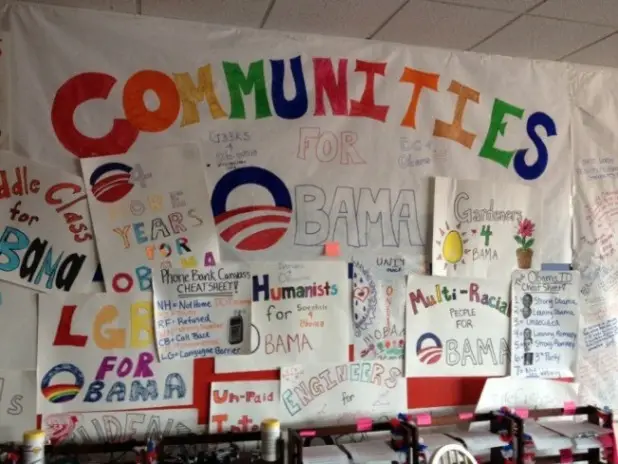Last weekend I arrived in Virginia to begin a month’s work for the Obama campaign. The levels of organisation, drive and purpose that I have witnessed since being here have certainly been impressive – little wonder that Iain McNicol, General Secretary of the Labour Party, chose to visit the Falls Church office during a recent fact finding trip to the US.
In Virginia, the party has been engaged in a huge voter registration drive, clocking up nearly 100,000 new voters (in a State with a total population of 8 million). Now, the challenge is to make sure that these voters, who have never voted before, actually go to the polls on 6th November.
In one county alone, there are eight large offices co-ordinating the campaign, which serve as hubs for a vast volunteer effort. Each office has approximately four Field Organisers – full time workers who have already been in the post for months, and in many cases have put their professional lives on hold for the campaign. Each of them co-ordinates a number of volunteers, and a big theme of this is the ‘multiplier effect’ – asking each volunteer to ask their friends and family to get involved, who will then do the same to their social circle.
Spending time in the local campaign offices, one is reminded of the Tory rhetoric (now quietly dropped) of a ‘big society’. Ordinary people are making extraordinary commitments of time and effort to a cause that they feel so strongly about – from phone banking, to canvassing, training other volunteers, and even cooking. Many are veterans of many election campaigns, and have travelled to this key swing state from all over the country.
Whilst watching Tuesday’s presidential debate with supporters at a local Organizing For America Office, I was reminded just how passionately people feel about this election. Fearful perhaps of another performance like that in the first presidential debate, those rooting for Obama at the office greeted every attack he landed on Romney with reactions more akin to football supporters than politicos. Those sitting around me willed Obama to ‘take control’ of the debate, and were overjoyed when he finally made a reference to Romney’s 47% comment – which he had (surely deliberately) left until his closing remarks.
Obama’s success in the debate was then used to further motivate the party faithful who are working on the campaign, and spur them on to even greater efforts. The team have been urged to make the ‘big ask’ of volunteers – persuading them to commit to two shifts of phone banking, rather than one, for example, or asking them to canvass on Sunday as well as Saturday. New volunteers have been turning up in person at the office every day, spurred on by the President’s performance.
The more aggressive Obama that we saw at Tuesday’s debate will have galvanised his supporters but the overtly confrontational style of the debate will have done little to attract the tiny fraction of voters that remain undecided. In the short time that remains before America goes to the polls, getting out the vote will be crucial.






